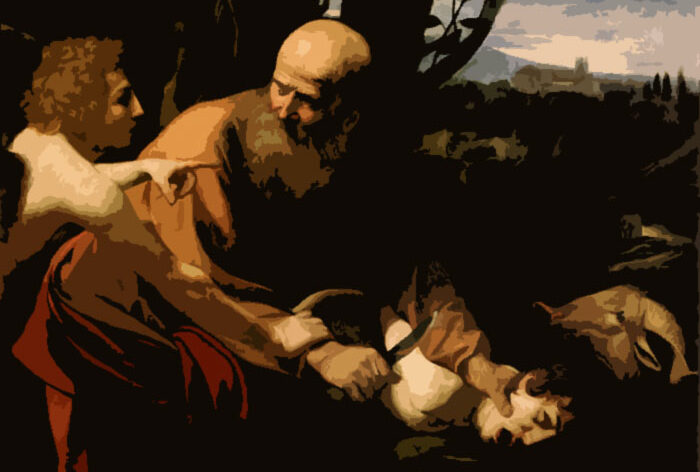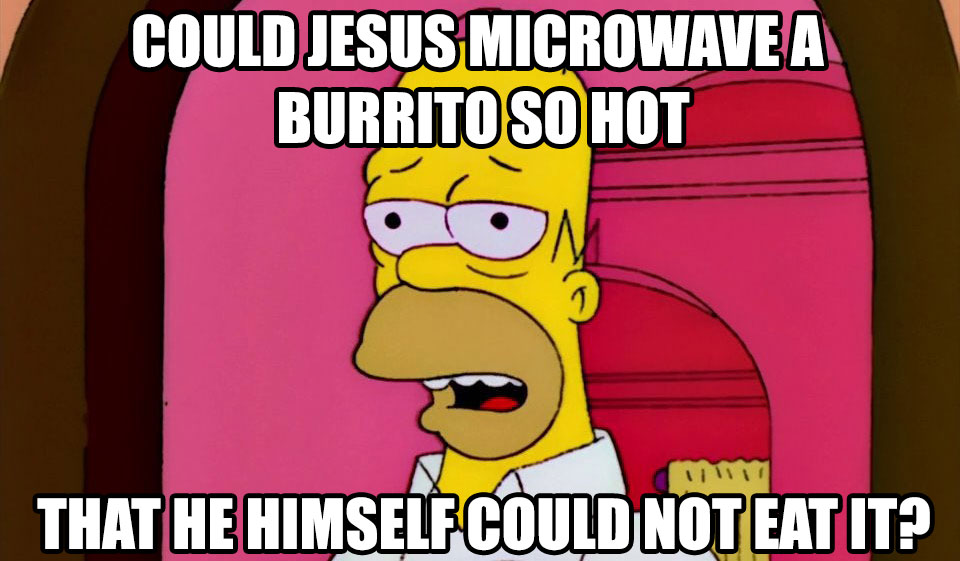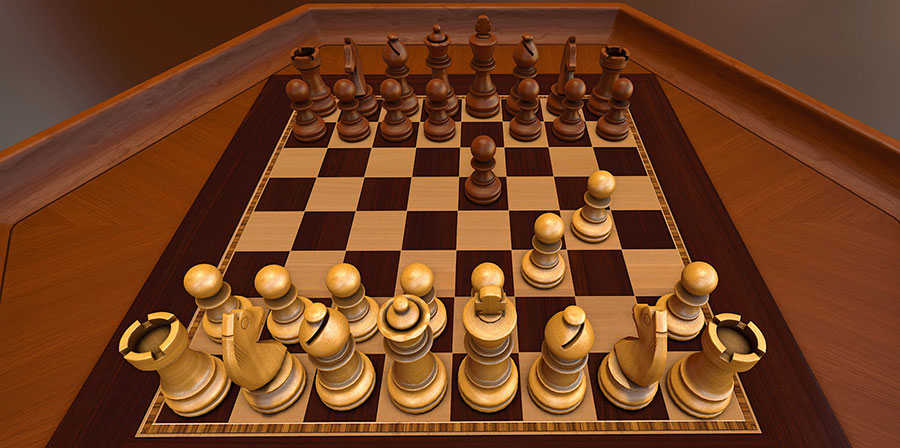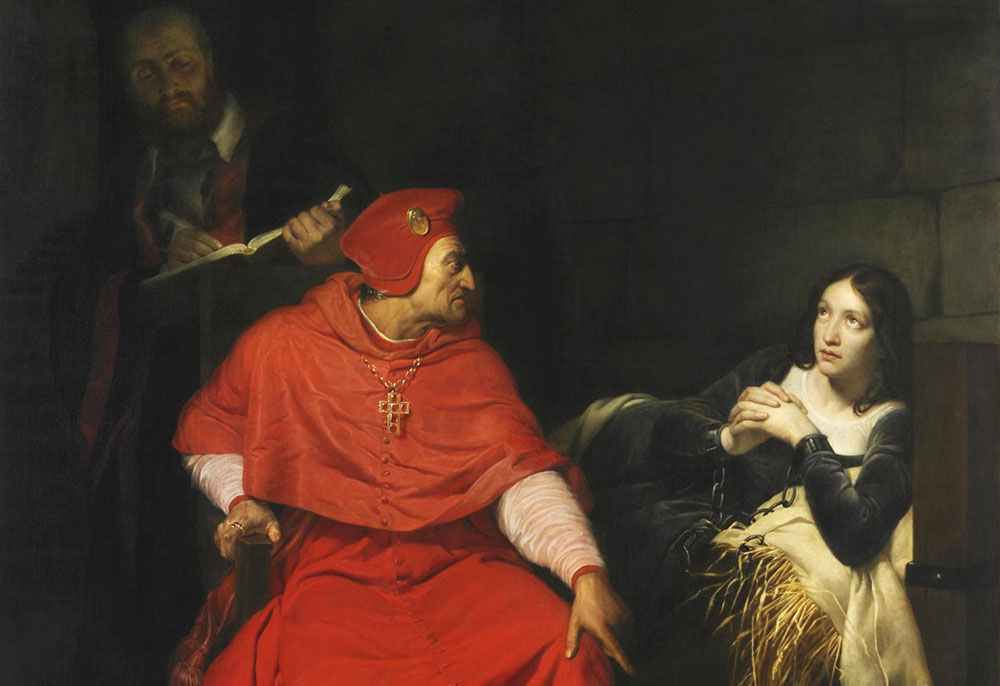
In this paper we shall attempt to examine the concepts of morality, sin, and how these are influenced by and influence the existence of God. Given that the interpretation of these ideas can vary widely from reader to reader, it will initially be necessary to build a consistent framework which clarifies the paper’s key assumptions before moving onto the paper’s principal focus.
Before we attempt to deal with the inherently abstract nature of morality and sin, let us first put forth four characteristics that are considered to be axiomatic aspects of the Judeo-Christian God.
- God is omnipotent.
- God is omniscient.
- God is omnipresent.
- God is love.
Next, we need to briefly summarize the problem of suffering, or as C.S. Lewis refers to it, the “Problem of Pain,” and assert the following: from a moral perspective, the suffering of the innocent is immoral. Furthermore, one might argue that it is the moral imperative of those who have the power to prevent said suffering to do so, lest they themselves be culpable. For the purpose of framing this in more concrete terms, if a person witnessed the torturing of a litter of puppies and chose to remain silent, they would then share the responsibility of the guilty party. Without going into the theological concept of “innocence” particularly as it relates to original sin – we can at least from a secular perspective make the case that children, principally infants, could be most classified as innocent as well as being cognitively incapable of grasping the circumstances behind their suffering.
Since God is omnipotent, he is infinitely capable of preventing the suffering which occurs daily in the world. If God is love, we would also expect God to prevent the suffering of his creations – particularly since the suffering is also a byproduct of his creation, and God might be considered in some way indirectly responsible for that suffering in the first place.
Therefore, the question must be asked: “Why does God continue to permit the suffering of innocents in the world?”
Classically, a commonly offered counterargument is that preventing suffering would somehow simultaneously preclude the concept of free will. In order to allow for said freedom, God must also accommodate the possibility that mankind can commit acts of evil as well as good.
However, if God is truly omnipotent, why should he necessarily be bound by the limitations of reality, a reality which he is responsible for creating? To imply that God is somehow incapable of eliminating suffering while still preserving free will is to imply that God is subject to logic and therefore limited by the physical laws of nature. This would seem to conflict with the aforementioned first axiom of God. However, there is a school of thought which theorizes that omnipotence and the boundaries of logic are not necessarily mutually exclusive, e.g., can God create a square circle? The ability to conceive of impossibilities is particularly prevalent in the domain of mathematics, for example, complex numbers.

Errata: “We could even consider the concept of preventing the conception of people who have the intent to commit evil within the world though this has connections to predestination.”
Moreover, there are numerous biblical instances of God apparently interfering with this ostensibly inviolable concept of free will. Exodus 9:12 “But the Lord hardened Pharaoh’s heart and he would not listen to Moses and Aaron, just as the Lord had said to Moses.”
Therefore, we can come to two possibilities:
- God is not all-powerful (an intrinsic quality of godhood) or
- The human concept of morality does not apply to God and ultimately humans can never hope to understand God – ergo God’s morality is not man’s morality. As an aside, this would seem to significantly weaken C.S. Lewis’ argument of the “existence of God by universal morality” presented in Mere Christianity.
Let us then suppose that morality is actually a human invention (or a byproduct of social evolution), and that it could be argued that the bible’s references to morality is not morality in the conventionally understood sense. Rather, it refers to events more in terms of whether or not those events are sinful – and that sin and morality are very different constructs. As God is exemplified as a perfect being, he would by definition cease to be God should he affect an action which is imperfect. This means that perfection is actually defined in terms of God and not the other way around.
Errata: Are we getting precariously close to the dilemma of causality, i.e. which came first, the chicken or the egg? If one of the defining qualities of God includes perfection, then any action God performs is summarily perfect, but does this mean that God is physically incapable of acting in an imperfect manner? Is God somehow limited to actions of perfection, or does perfection instead emanate from God and must be constantly redefined and expanded by encompassing all historical actions issuing from God at the most current point in time? Must we reverse engineer the actions of God in order to formulate some codex of morality?

“Is God capable of making an imperfect decision?”
Therefore, is God the scale through which any given action’s potential for sin must be measured?
In a sense, God’s actions are just and perfect because they are his actions. It can be compared to a moving target, and when we factor in the context in which the action occurs, we may observe actions that seem diametrically opposed from a moral perspective occurring at different times and contexts. Morality is not some absolute construct that God is acting within the confines of, rather all actions originating from God are by definition moral. Morality bound by God versus God bound by morality.
One might put forth that God does attempt to establish a conventionally understood morality in the form of the Ten Commandments, or that we perhaps inherently possess some simulacrum of God’s morality à la the shadows on the walls of the cave in Plato’s Republic; however, we cannot in good faith discuss God in terms of conventional morality as the morality of humans depends on the social context of the times.
By way of illustration, in contemporary society one would have to be clinically insane to assert that infanticide is justifiable or acceptable in virtually any circumstances; yet, in the bible we observe repeated instances of what modern society would condemn as “ethnic genocide”, God commanded the Israelites to wipe out the Canaanites, or the Amalekites, or the Hittites, or the stalactites, down to the last man, woman, and child. The moral of that particular historical footnote is that if your civilization ends with a “-ite” suffix, consider emigration.

Morality is a philosophical framework of humans that depends on the social context and cultural mores at the time. Ergo, morality exists outside of God, or rather we could posit that God’s perfection supersedes secular morality. Morality, even what we would classify as universal morality, has essentially evolved in lock-step with the evolution of humanity.
Accordingly, morality really is more of a secular principle – one which we should strictly confine to mankind. Therefore it is more appropriate to discuss God in terms of sin and sinlessness.
God can effectively do as he wills, and we cannot look to his actions as a model for how humans should act, nor should we seek to emulate his behavior based on historical precedent, or even based on indirect evidence we have of his actions channeled via his will through the prophets of the ancient world.
Since God is moving through those people, these actions are still considered to be perfect on the grounds that God is the hidden being behind those actions and an action committed by God should be considered a perfect act by virtue of the fact that it originated from God. An equivalent action executed by a human would:
- not be considered a perfect act (because perfection is something that belongs to God alone), and
- may or may not be moral, and may or may not be sinful. In point of fact, we should really be defining sin as the purposeful act of contravening God.
Practically speaking, we can’t even begin to discuss morality in terms of God as previously stated. Since we are unable to depend on secular morality for the purposes of determining whether or not an action is sinful, the only way to commit an act of non-sinfulness is if God is the indirect agent behind the action – on the grounds that if God is the prime mover behind the actions, those resulting actions are not sinful irrespective of where they fall within the domain of secular morality. This is crucially important.
However, this also means that we cannot ultimately know whether an action is considered good and non-sinful unless so commanded by God. Regrettably, this leads to all kinds of treacherous interpretative doors – as one needs a direct conduit to God, and who among us can claim the mantle of Vicarius Christi?

In light of this, the best we can do is to adhere to the knowable secular morality – in spite of the fact that secular morality is not God’s morality and that morality, as previously put forth, is not a concept that even applies to God. Secular morality being the sociological framework of ethics perceived as justifiable by a minimally acceptable quorum within contemporary society.
Ultimately, God is neither moral nor immoral, rather God is merely perfect and all actions arising from his will are therefore consequently perfect, whereas morality is a worldly judgment of worldly action judged within a worldly context.
